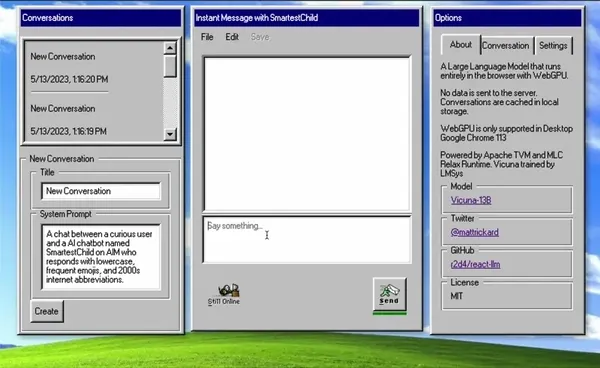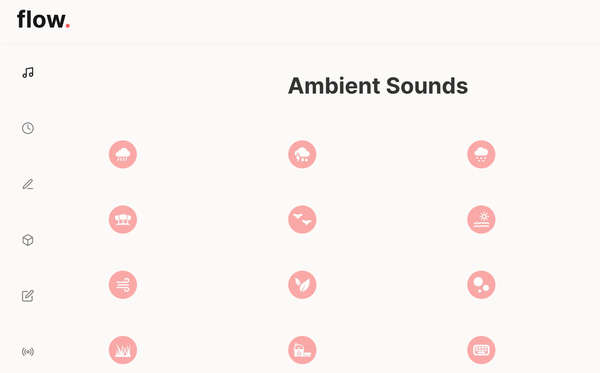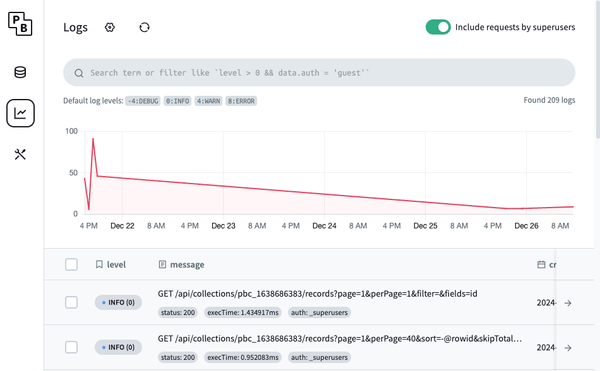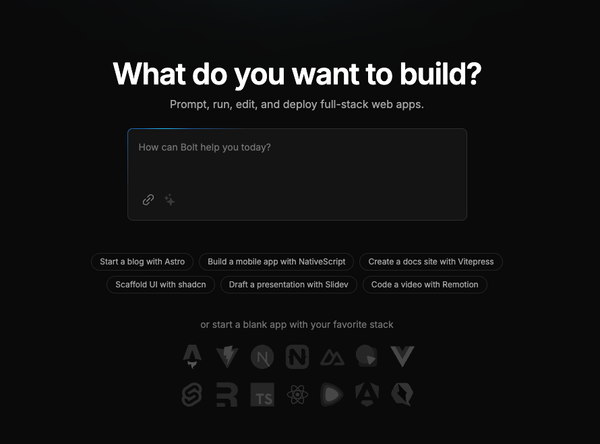Best 14 Free and Open-source Next.js Apps for 2024 (February)
Table of Content
What is a Next.js?
Next.js is a React framework that provides features such as server-side rendering and generating static websites for React-based web applications. As for its latest release, as of the time of this writing, it's Next.js 14.
In this post, we added the best new and updated open-source Next.js projects for February 2024.
1- NextChat
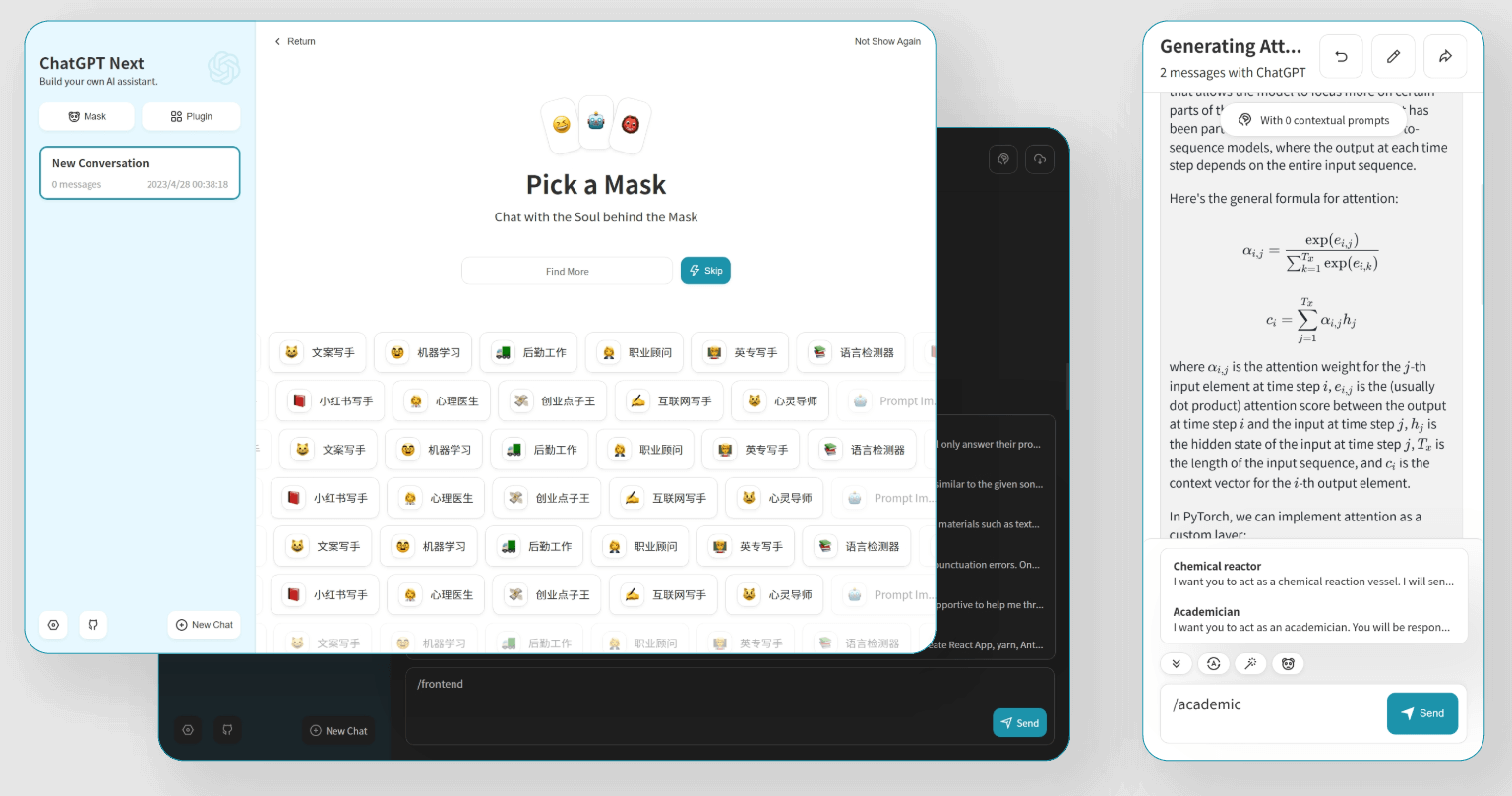
NextChat (ChatGPT Next Web) is a free and open-source solution offering a well-designed cross-platform ChatGPT web user interface.
It supports GPT3, GPT4, and Gemini Pro. The interface is available for various platforms, including Web, PWA, Linux, Windows, and MacOS.
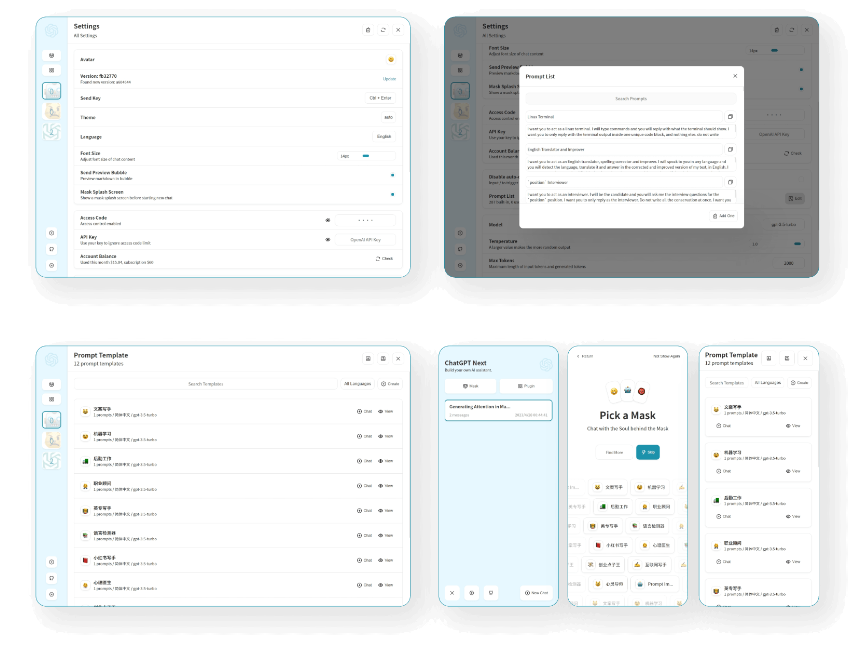
Features
- Deploy for free with one-click on Vercel in under 1 minute
- Compact client (~5MB) on Linux/Windows/MacOS, download it now
- Fully compatible with self-deployed LLMs, recommended for use with RWKV-Runner or LocalAI
- Privacy first, all data is stored locally in the browser
- Markdown support: LaTex, mermaid, code highlight, etc.
- Responsive design, dark mode and PWA
- Fast first screen loading speed (~100kb), support streaming response
- New in v2: create, share and debug your chat tools with prompt templates (mask)
- Awesome prompts powered by awesome-chatgpt-prompts-zh and awesome-chatgpt-prompts
- Automatically compresses chat history to support long conversations while also saving your tokens
- I18n: English, 简体中文, 繁体中文, 日本語, Français, Español, Italiano, Türkçe, Deutsch, Tiếng Việt, Русский, Čeština, 한국어, Indonesian languages
- System Prompt: pin a user defined prompt as system prompt
- User Prompt: user can edit and save custom prompts to prompt list
- Prompt Template: create a new chat with pre-defined in-context prompts
- Share as image, share to ShareGPT
- Desktop App with tauri
- Self-host Model: Fully compatible with RWKV-Runner, as well as server deployment of LocalAI: llama/gpt4all/rwkv/vicuna/koala/gpt4all-j/cerebras/falcon/dolly etc.
2- Lobe Chat
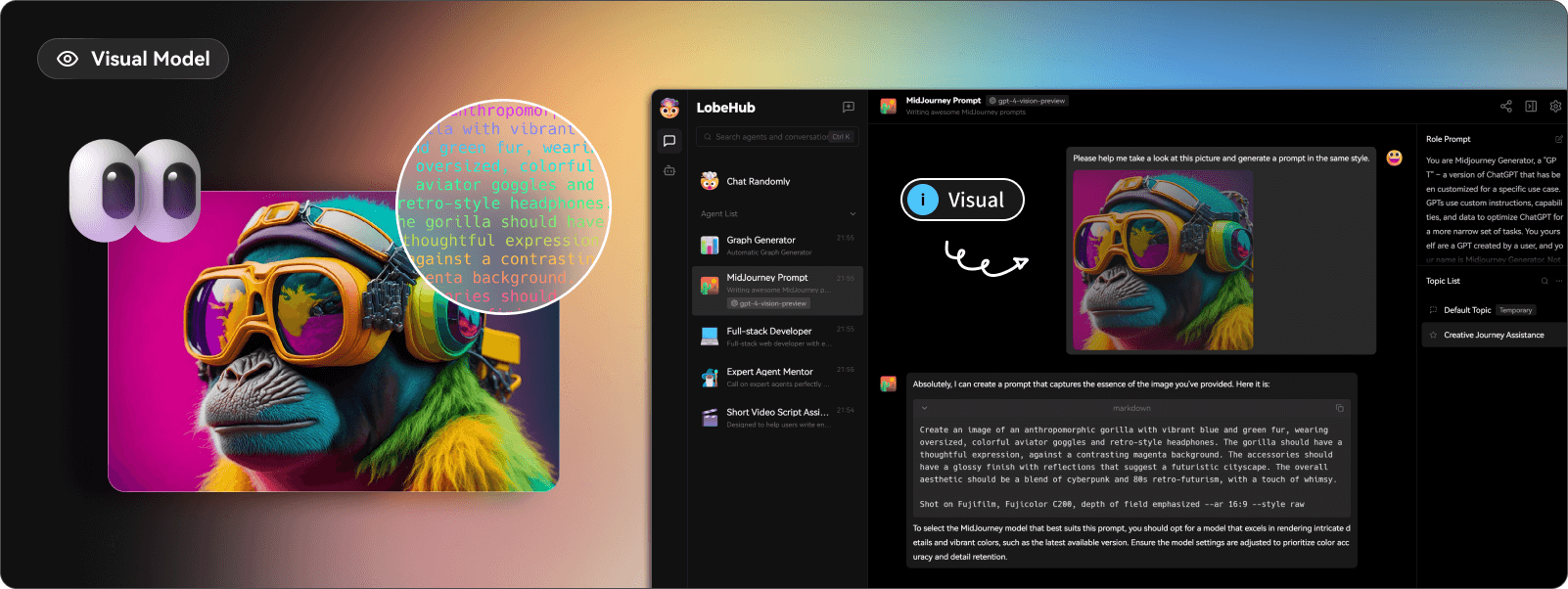
LobeChat is an open-source chatbot framework that supports speech synthesis, multimodal, and an extensible plugin system. It allows for free deployment of private ChatGPT/LLM web applications.
The framework now supports OpenAI's gpt-4-vision model, enabling visual recognition and intelligent conversation based on image content. This feature expands communication beyond text, allowing for a richer, more diversified conversational experience.
LobeChat uses Text-to-Speech and Speech-to-Text technologies to convert text messages into voice outputs, providing a conversational experience akin to talking to a real person. Users can select from various voices for the agent.
Features
- Open-source, high-performance chatbot framework
- Supports speech synthesis and multimodal interactions
- Extensible plugin system
- One-click free deployment of private ChatGPT/LLM web application
- Supports OpenAI's latest gpt-4-vision model for visual recognition
- Enables upload or drag and drop of images for intelligent conversation
- Offers a range of high-quality voice options for Text-to-Speech (TTS)
- Supports Speech-to-Text (STT) technologies
- Open source TTS toolkit @lobehub/tts developed in TypeScript
- High-quality voice generation capabilities on the server-side with just 15 lines of code
- High-quality React Hooks and visual audio components on the browser side
- Text-to-Image generation technology
- Allows users to invoke image creation tools within conversations
- Transforms user ideas into images for visual storytelling
3- JSON Crack
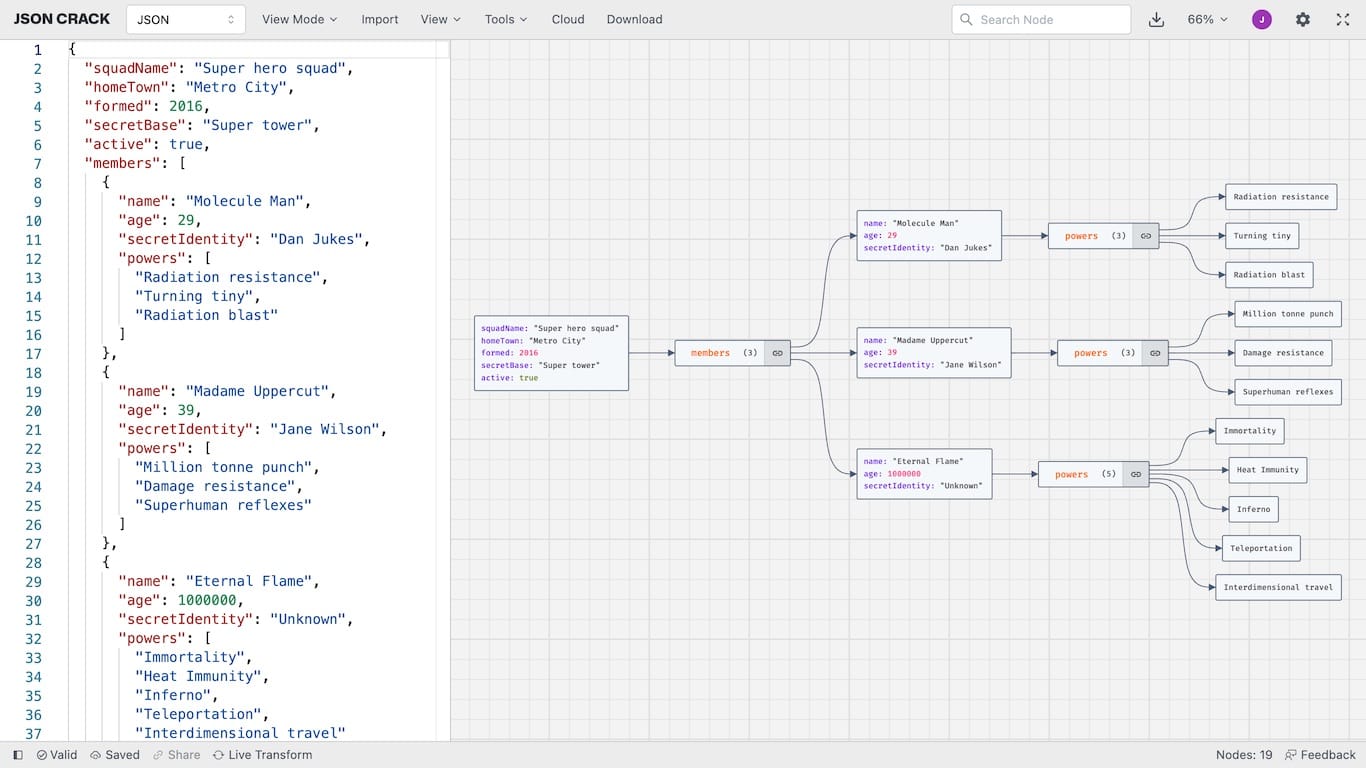
JSON Crack is a free, open-source data visualization application that can transform various data formats, including JSON, YAML, XML, CSV, into interactive graphs.
It provides an intuitive and user-friendly interface for exploring, analyzing, and understanding complex data structures, making it suitable for developers and data enthusiasts.
Features
- Free and open-source: GPL-3.0 License.
- Visualizes various data formats such as JSON, YAML, XML, CSV
- Creates interactive graphs
- Features an intuitive and user-friendly interface
- Dark mode available
- Supports Graph & Tree view modes
- Can transform & filter data with AI
- Allows exporting to PNG, SVG, JPEG & clipboard
- Supports zoom and panning with touch gestures
- Supports multiple data formats like JSON, YAML, CSV, XML, TOML
- Includes JQ, JSON Schema, Decode JWT, Generate Types and interfaces
- Provides a wide range of tools - search graph, json path, validate, save to cloud
- Offers embeddable iframe widgets
- Easily install using Docker.
4- Saleor Core
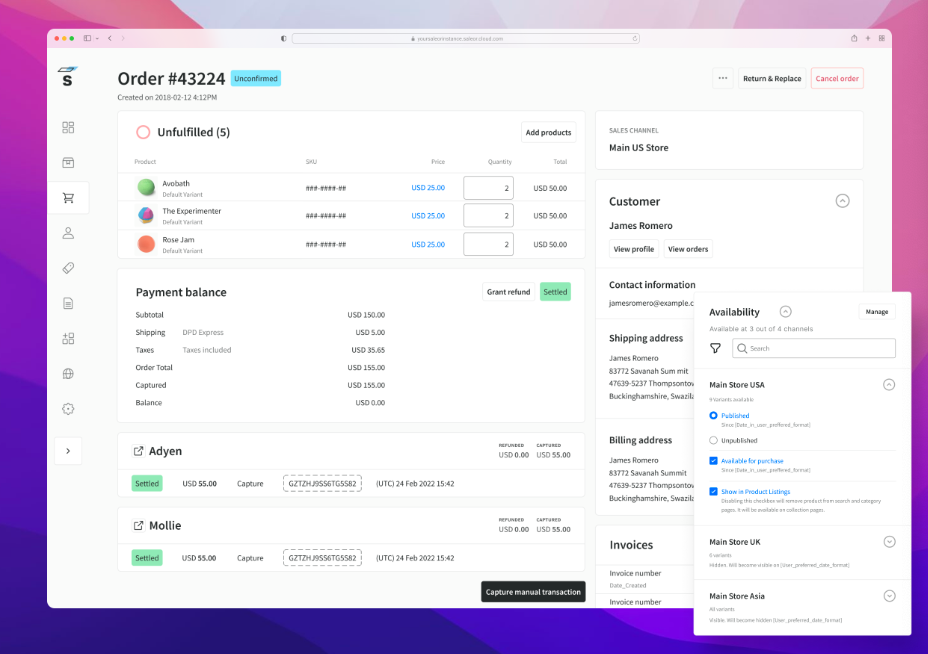
Saleor Core is a high-performance, composable, headless commerce API that delivers ultra-fast, dynamic, personalized shopping experiences. It is an open-source e-commerce platform designed for high-volume companies, offering extensibility and compatibility with any device.
Features
- Headless / API first: Build mobile apps, custom storefronts, POS, automation, etc
- Extensible: Build anything with webhooks, apps, metadata, and attributes
- App Store: Leverage a collection of built-in integrations
- GraphQL API: Get many resources in a single request and more
- Multichannel: Per channel control of pricing, currencies, stock, product, and more
- Enterprise ready: Secure, scalable, and stable. Battle-tested by big brands
- CMS: Content is king, that's why we have a kingdom built-in
- Dashboard: User-friendly, fast, and productive.
- Global by design Multi-currency, multi-language, multi-warehouse, tutti multi!
- Orders: A comprehensive system for orders, dispatch, and refunds
- Cart: Advanced payment and tax options, with full control over discounts and promotions
- Payments: Flexible API architecture allows integration of any payment method
- SEO: Packed with features that get stores to a wider audience
- Cloud: Optimized for deployments using Docker
5- Infisical
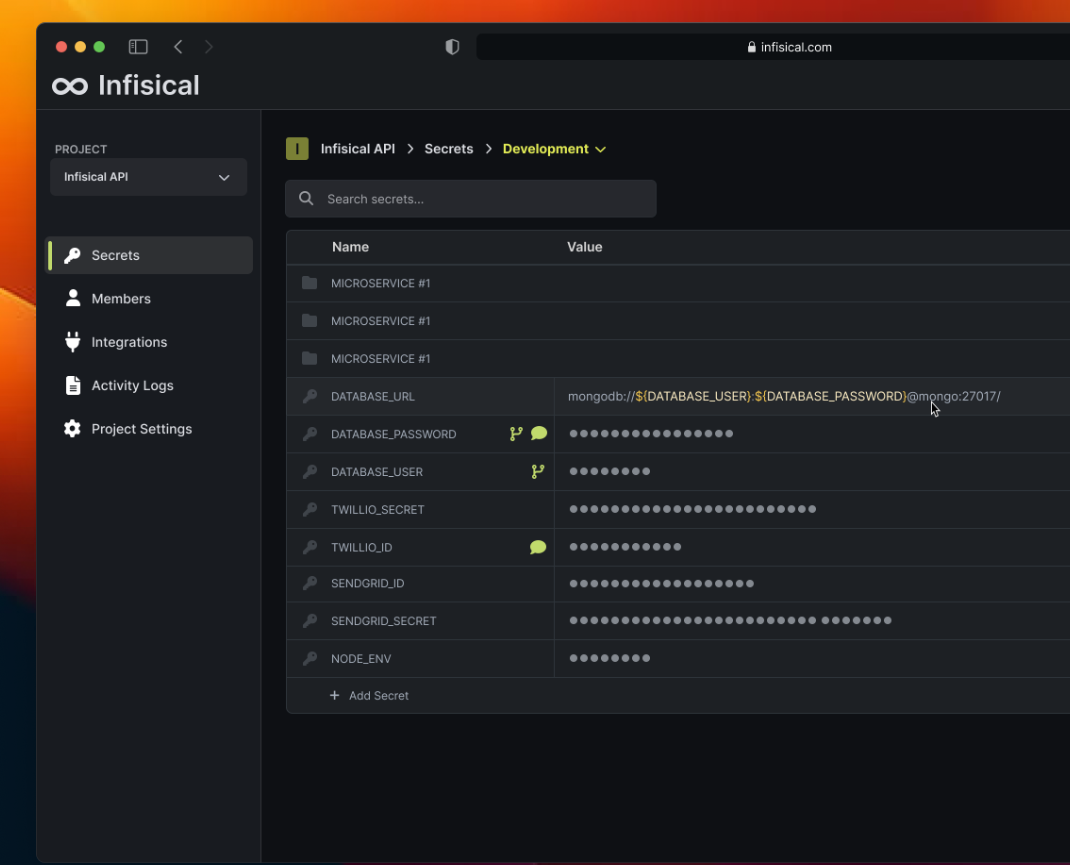
Infisical is an open-source secret management platform for centralizing secrets like API keys and database credentials. It offers a user-friendly dashboard for managing secrets, client SDKs for fetching secrets, a CLI for fetching and injecting secrets, and an API for performing CRUD operations.
Features
- User-friendly dashboard to manage secrets
- Client SDKs to fetch secrets for apps and infrastructure
- Infisical CLI to fetch and inject secrets into any framework
- Infisical API for CRUD operations on secrets, users, projects, etc.
- Native integrations with platforms like GitHub, Vercel, AWS
- Compatible with tools like Terraform, Ansible
- Infisical Kubernetes operator to manage secrets in k8s
- Infisical Agent to inject secrets into your applications
- Self-hosting and on-prem for data control
- Secret versioning and Point-in-Time Recovery
- Audit logs for recording project actions
- Role-based Access Controls for permission sets
- Simple on-premise deployments to AWS, Digital Ocean
- Secret Scanning and Leak Prevention
6- Coolify
Coolify is an open-source, self-hostable alternative to cloud platforms like Heroku, Netlify, and Vercel. It allows you to manage servers, applications, and databases on your own hardware, requiring only an SSH connection. Coolify avoids vendor lock-in, saving all configurations to your server, so you can still manage resources if you stop using the platform.
Features
- Open-source and self-hostable
- Allows management of servers, applications, and databases on own hardware
- Avoids vendor lock-in by saving all configurations to your server
- Compatible with a wide range of programming languages and frameworks
- Deploy resources to any server, including own servers, VPS, Raspberry Pi, EC2, DigitalOcean, Linode, Hetzner, and more
- Supports deployment to single servers, multiple servers, or Docker Swarm clusters
- Integration with both hosted and self-hosted platforms like GitHub, GitLab, Bitbucket, Gitea, and others
- Automatic setup and renewal of Let's Encrypt SSL certificates for custom domains
- Automatic data backups to any S3 compatible solution
- Provides a robust API for automation and integration
- Collaboration features to share projects with team members and control permissions and roles
- Supports automatic deployment of new commits and pull requests
- Server automation tasks once connected
- Monitoring of deployments, servers, disk usage, and other aspects
- Notifications through channels like Discord, Telegram, and email in case of any events on your server or with deployments
7- SuperAGI
SuperAGI is a free developer-first, open-source framework for creating autonomous AI agents. It allows for the creation, management, and operation of these agents, which can run concurrently and improve over time. Key features include the ability to provision, spawn, and deploy agents, extend their capabilities with toolkits from a marketplace, and access them through a graphical user interface.
8- SigNoz
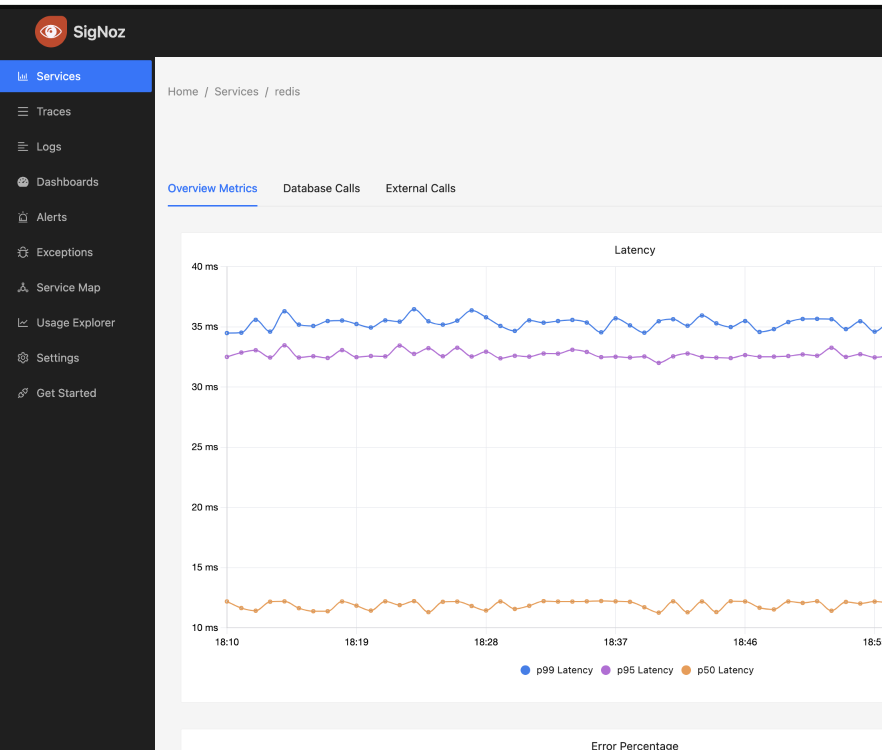
SigNoz is a free, open-source alternative to platforms like DataDog and New Relic, providing application monitoring and troubleshooting. It offers features such as unified visualization of metrics, traces, and logs, detailed flamegraphs for problem tracing, aggregates on trace data for business metrics, log filtering and querying, automatic exception recording in multiple languages, and an easy-to-use alert system.
9- Dub
Dub.co is an open-source link management tool designed for modern marketing teams to create, share, and track short links.
10- Novel
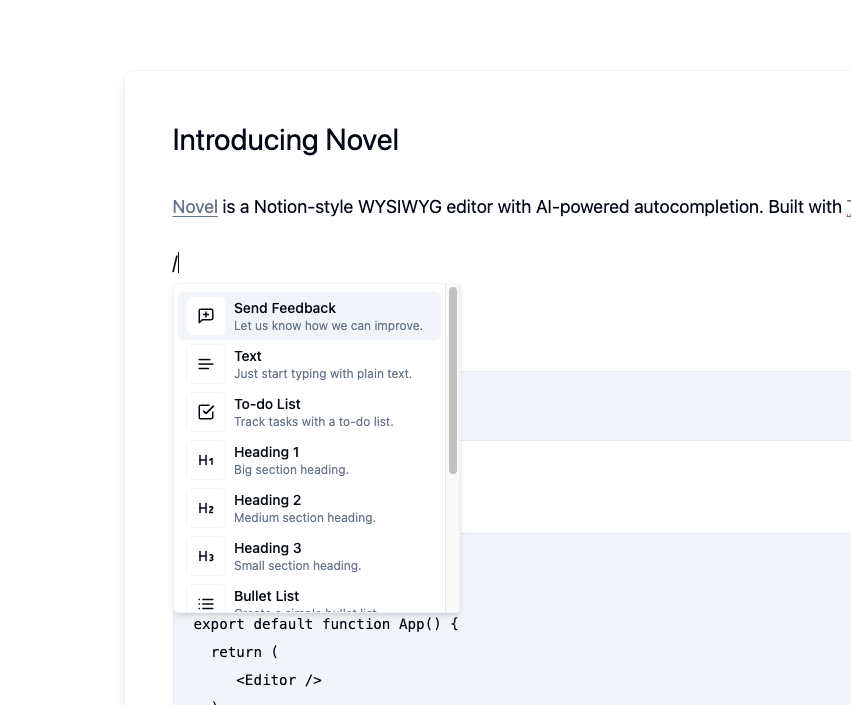
Novel is an open-source Notion-style WYSIWYG editor that features AI-powered autocompletions and is compatible with React, Vue, Angular, and Svelte.
11- Plane

Plane is an open-source software development tool for managing issues, sprints, and product roadmaps. It's in early development stages, and feedback is encouraged for improvement. Users can get started with Plane by creating a Plane Cloud account or self-hosting, as detailed in the deployment documentation.
Features
- Issue Planning and Tracking: Quickly create issues and add details using a powerful rich text editor that supports file uploads. Add sub-properties and references to issues for better organization and tracking.
- Issue Attachments: Collaborate effectively by attaching files to issues, making it easy for your team to find and share important project-related documents.
- Layouts: Customize your project view with your preferred layout - choose from List, Kanban, or Calendar to visualize your project in a way that makes sense to you.
- Cycles: Plan sprints with Cycles to keep your team on track and productive. Gain insights into your project's progress with burn-down charts and other useful features.
- Modules: Break down your large projects into smaller, more manageable modules. Assign modules between teams to easily track and plan your project's progress.
- Views: Create custom filters to display only the issues that matter to you. Save and share your filters in just a few clicks.
- Pages: Plane pages function as an AI-powered notepad, allowing you to easily document issues, cycle plans, and module details, and then synchronize them with your issues.
- Command K: Enjoy a better user experience with the new Command + K menu. Easily manage and navigate through your projects from one convenient location.
- GitHub Sync: Streamline your planning process by syncing your GitHub issues with Plane. Keep all your issues in one place for better tracking and collaboration.
12- Hey
Hey is a social media application that uses Lens Protocol to create a decentralized and permissionless platform. It emphasizes privacy, security, and user control, aiming to transform the social media landscape by offering a more transparent and fair digital environment.
13- Medusa.js
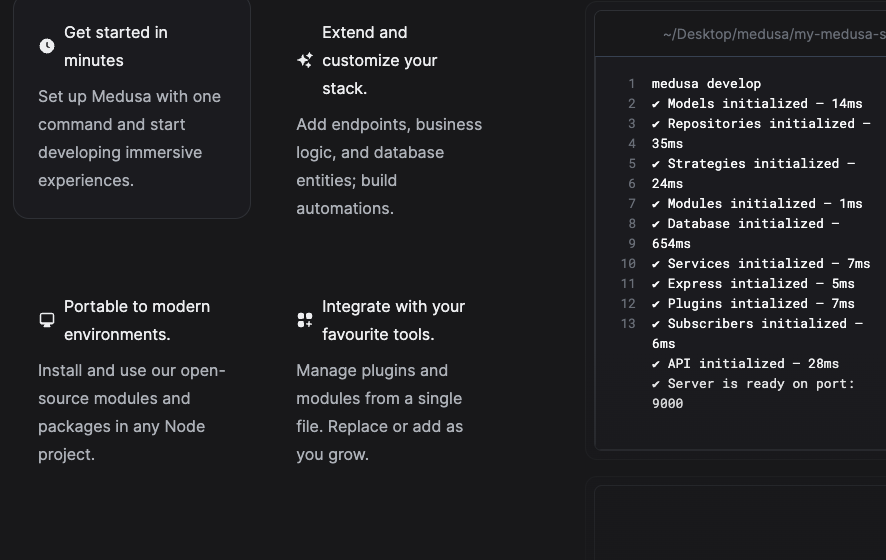
Medusa is a set of open-source commerce modules and tools designed to build rich, reliable, and performant commerce applications. It provides the foundational commerce primitives needed for advanced ecommerce stores, marketplaces, or any product, without the need to reinvent core commerce logic.
14- Relivator
Relivator is an open-source, self-hosted project featuring Next.js 14, Stripe, Tailwind, and more. It aims to be the most feature-rich Next.js starter, offering more than just code.
It's stable, ready for production, and includes a variety of features like i18n, a responsive server, and MySQL/PostgreSQL compatibility. The project also supports switching between Clerk/NextAuth.js and Drizzle's MySQL/PostgreSQL on the fly.



